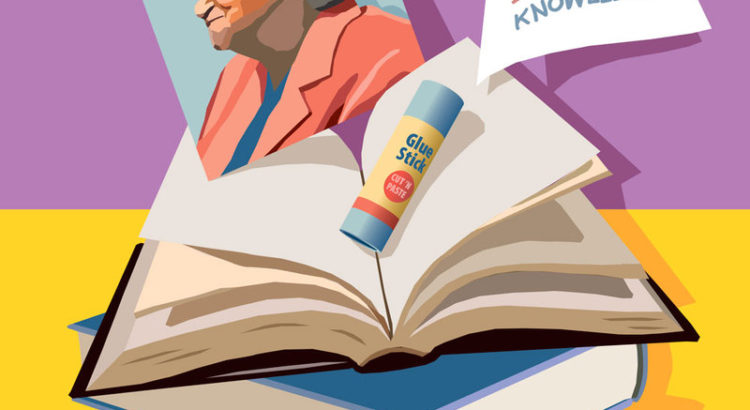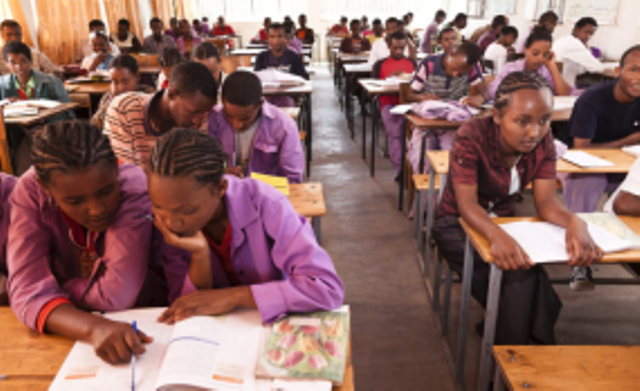África/Septiembre de 2017/Autores: Khomotso Ntuli , Gert van der Westhuizen /Fuente: Mail and Guardian
Resumen: Los años 2015 y 2016 han recibido varias convocatorias en las universidades para la descolonización del conocimiento. Estos, impulsados por los movimientos #RhodesMustFall y #FeesMustFall, han destacado a los trabajadores de outsourcing, la pobreza estudiantil y el conocimiento enseñado. La última incluyó opiniones sobre los planes de estudio de la educación superior como inadecuados, irrelevantes, no inclusivos e intrínsecamente ajenos, sin tener en cuenta el conocimiento local y las tradiciones de conocimiento de otras partes de la sociedad.Los estudiantes parecen recurrir a pensadores críticos en África y el Sur Global, incluyendo los escritos del educador brasileño Paulo Freire, sobre cómo se enseña o aprende a los pobres y la clase trabajadora, y los problemas con la relación unidireccional entre aquellos considerados informados y quienes recibir el conocimiento.
The years 2015 and 2016 have seen several calls at universities for the decolonisation of knowledge. These, prompted by the #RhodesMustFall and #FeesMustFall movements, have highlighted outsourcing workers, student poverty and the knowledge taught. The last included views about higher education curricula being inadequate, irrelevant, not inclusive and inherently alien, not taking into account local knowledge and the knowledge traditions of other parts of society.
Students seem to draw on critical thinkers in Africa and the Global South, including the writings of the Brazilian educationalist Paulo Freire, on how poor and working class people are taught or learn, and the problems with the unidirectional relationship between those considered knowledgeable and those who receive the knowledge.
This is a problem faced not only by university students but also by pupils. The consequence has been what the American historian and sociologist WEB du Bois called a “double consciousness”, one being the “imposed” experience and the other being the lived experience of the “subjects”, with unjust consequences.
The challenge of decolonisation in schools and universities is about the knowledge prescribed in the curriculum. This knowledge, despite the intentions of people’s education and emancipatory learning from way before 1994, remains a continuation of Western knowledge systems.
This has been highlighted by South Africans such as Catherine Odora Hoppers, Crain Soudien, Aslam Fataar and other local education activists, who have detailed how this is still contributing to subjugation, alienation, othering and “epistemicide”.
African knowledge systems are still nowhere visible in the official knowledge of the school curriculum and the policies informed by what teacher educators and researchers maintain as the science of teaching.
In comparison to other countries, South Africa has high percentages of children attending school (though not yet 100% as it should be), and is still doing well in terms of Unesco’s 2030 goals of “education for all”. But the dilemma is that education curricula still exclude African knowledge systems, which means we cannot really talk about inclusion in the full sense of the word.
The calls for the decolonisation of knowledge require all concerned to consider what knowledge is about, and whose knowledge is important and valued. What is also missing in this debate is how knowledge could go beyond what gets you a job and encompass the many aspects of a person and their social context. Such knowledge is not only readily available but also valuable for pupils to understand their place in the communities in which they live.
Part of the problem with school curriculums knowledge and textbooks is that they follows “scientific knowledge” in a manner that seems to divorce school knowledge from the community. This is not only limited to community level but is also reflected by calls for decolonised education in some societies, especially in post-colonial countries. It is a call for the contextualisation of knowledge — a reciprocal engagement between the teacher, the pupil and the community they find themselves or live in.
The idea that “scientific knowledge” is the only legitimate form of knowledge leads Hoppers, the professor of development education at Unisa, to ask questions about the perception of an “epistemological vacuum”, where there is a view that if knowledge is not acquired through a scientifically accredited process then it is less valuable, if valued at all.
In a chapter from a book she wrote with Howard Richards, titled Rethinking Thinking, they note that “tertiary institutions in Africa are challenged to make their position known on the integration of local communities, the critical evaluation of indigenous knowledge, the reciprocal valorisation of knowledge systems and cognitive justice, as Africa seeks to find its voice, heal itself and reassess its true contributions to the global cultural and knowledge heritage”.
She adds that “it is precisely the holders of indigenous knowledge, the ‘informal’ community of expertise located in rural areas of Africa, Asia and other parts of the world, whom the official application of science and development has destroyed”.
The call for decolonisation is a call for restoring the congruence between home and school, and for the educational value of schooling to be advanced. Communities do not see themselves in the school curriculum. Textbooks encourage memorising alien knowledge content — this we see in all school subjects. In the subjects of history, life sciences and life orientation, knowledge is taught and memorised in decontextualised ways. For example, grade eights have to learn about curriculum topics such as “career choice”, “decision-making” and “self-knowledge” in ways that do not include community conceptions of work, careers, jobs and making a living, and drawing on elders for decision-making. Such topics are essentialised in factual and procedural ways, fragmented and decontextualised.
Part of decolonisation is to rediscover community knowledge and learning systems. This involves coming closer to elders and community knowledge holders. What are their understandings of work life, of doing work, not as job, but as community living? Elders have broader conceptions, and they use community learning systems and conversations for learning authentic to community life to enable children, outside of school, to learn about careers, decision-making and self-knowledge.
People’s lived experiences are an important element of their outlook on life and, by extension, their views on useful knowledge, learning and education in general.
Researchers and students from the University of Johannesburg have explored this understanding in a collaborative study in Westbury, Johannesburg. The purpose was to document history knowledge and how community knowledge holders share what they know with children outside school, and to make what is taught in school relevant.
The project was kick-started in the latter part of 2016 with key questions about what authentic knowledge is perceived as and what form of knowledge is valued.
At a recent gathering, four elders/knowledge holders shared their history knowledge with children at the Westbury Youth Centre, which included their views on what it means to grow up in the area. Among their observations were statements such as “we will never know how to behave today and how to make tomorrow if we do not know what happened yesterday”.
This is a view that needs to be seen in the context of someone who comes from and appreciates the dynamics of the community.
Their identification with the area could also be seen in the reverence with which the community identifies with the name Florrie Daniels. She not only worked tirelessly to archive the history of Westbury but also ran projects to uplift the area.
Community knowledge seems to be underestimated, not considered and regarded as not relevant to what children need to learn in school. This leaves them half-educated, and growing up with the idea that it is only knowledge from school that is valuable. Added to this is that the education process does not seem to extend beyond the school walls.
It is also important to note that the history curriculum often treats South African communities as homogeneous. In reality, communities are complex and, without an acknowledgement of knowledge diversity, very little contextual education takes place.
The Westbury project aimed at documenting the “what” and “how” of community knowledge. In this process we focused on history knowledge — the history of community development. The very specific history of Westbury, which is similar to that of Sophiatown and the western townships, is very different to the traditional school history curriculum, which focuses on a selection of general historical events and distant timelines. One finds in the curriculum much about the areas but not the stories of people. The history curriculum in this context captures fact, historical facts.
There must be a fundamental overhaul of the knowledge that is taught in schools to ensure a greater congruence between the curriculum and community knowledge. This is not only to be seen as an aesthetic inclusion but also as a functional aspect of developing citizens with a recognition of their agency as a part of the community and their society. This is the crux of the need for a decolonised education that starts with early schooling and continues to tertiary level in order to have citizens who will understand the context of their communities and society.
Fuente: https://mg.co.za/article/2017-09-29-00-curriculums-must-include-local-content








 Users Today : 195
Users Today : 195 Total Users : 35459790
Total Users : 35459790 Views Today : 355
Views Today : 355 Total views : 3418327
Total views : 3418327